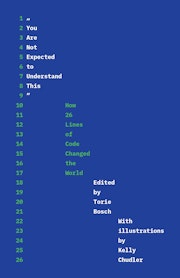Speaker Profile
“Torie was hit in our course on Storytelling Methods to Promote Health and Well-Being. [She] was open to collaborating with me on our students’ needs in writing health-related op-eds, and she presented a stellar talk on all the elements that go into writing a publishable op-ed. She stayed after the class to talk to students and she went out of her way to invite five our students to the STAT seminars gratis. She also answered all their questions thoughtfully without pulling any punches — which our students appreciate. And she’s kind and had a lovely easy-going rapport with our students. We know that we want her to return!” Neal Baer, award-winning showrunner, television writer/producer and Harvard University lecturer.
“We have many guest lecturers in our Media, Medicine, and Health masters degree program students at Harvard Medical School and Torie Bosch is one of the very best. She’s warm, generous, engaging, and knowledgeable. She covered every aspect of editorial writing and pitching—a topic of great interest to our students—and her 90-minute session flew by. We will absolutely invite her back.” Suzanne Koven, writer-in-Residence at Massachusetts General Hospital in Boston.
“Torie was, in a word, fantastic... She led an engaging session that offered a ton of helpful tips in a conversational manner.” Kristin Samuelson, Office of Global Marketing & Communications, Northwestern University
Torie Bosch works at the intersection of technology, culture and critique. In her role as the editor of Future Tense (a collaborative project of Slate magazine, New America, and Arizona State University), she explores the implications of new technologies for our current and future world. She is the editor of “You Are Not Expected to Understand This”: How 26 Lines of Code Changed the World, in which leading technologists, historians, and journalists reveal the stories behind the computer coding that touches all aspects of life—for better or worse. She has written on subjects from religion and medicine to reality TV and boy bands, and recently launched a Slate-ASU project called State of Mind to host more nuanced coverage of mental health.


